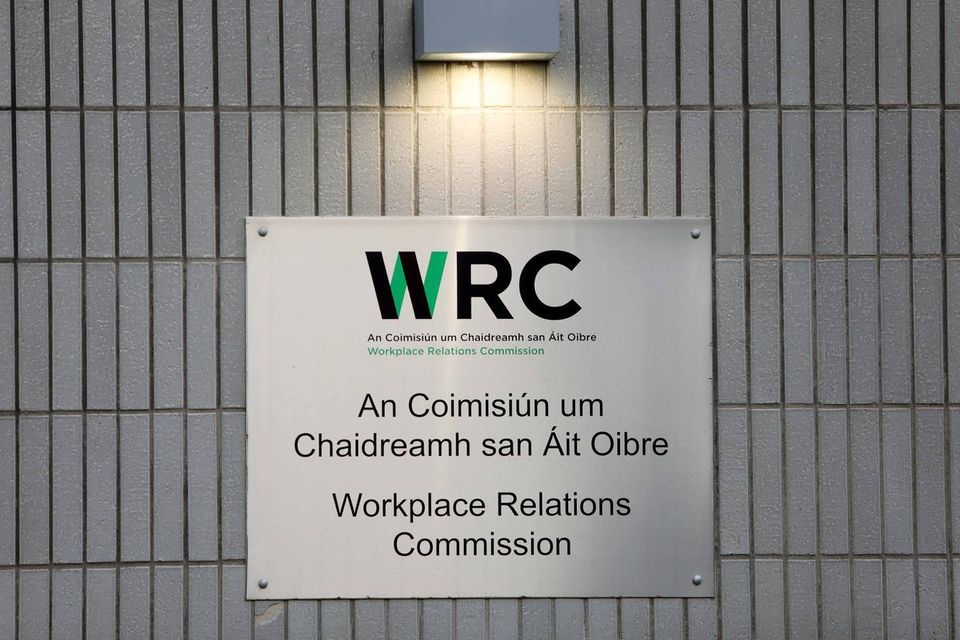HSE ordered to pay paramedic €65,000 after she was discriminated against over disability
Stock image
The HSE has been ordered to pay out €65,000 compensation to a female paramedic after it discriminated against her on the grounds of disability.
Workplace Relations Commission (WRC) Adjudicator, Janet Hughes has ordered that the HSE make the maximum award allowed to Marie O’Shea which is equivalent to 104 weeks’ pay.
Ms Hughes has also ordered that the HSE review the application of the Employment Equality Act 1998 with a view to preparing written guidelines and training for line managers and Human Resources (HR) personnel specifically in the emergency services.
Ms Hughes stated that this is being done so that the relevant personnel can apply in future anti discrimination provisions in Section 16 of the Employment Equality Act.
Ms Hughes stated that she was making such an order as the case has raised "a serious concern” regarding a lack of comprehension on the part of the HSE’s decision makers of their obligations to employees in the emergency services under Section 16 of the Employment Equality Act.
Ms Hughes stated that the €65,000 compensation award “is considered fair and appropriate compensation for the effects of the discrimination in all the circumstances of the case”.
In the case, Ms O’Shea sustained an injury in July 2018 which resulted in her not being fit for work for a number of weeks.
However, due to complications Ms O’Shea experienced mobility issues with her arm and what is known as “complex pain syndrome” and this in turn led to further treatment and an extended absence.
Ms O’Shea remained off work from February 2019 to March 2020 and her case was based on a failure of the HSE to accommodate her with a return to work following her injury.
Employed by the HSE’s National Ambulance Service, Ms O’Shea did return to work on March 2020 to a position on a switchboard in a hospital on the paramedic rate of pay.
In June 2020, Ms O’Shea returned to her position of ambulance paramedic and her health restored and her complaint covers the period from February 2019 to March 2020.
On behalf of Ms O’Shea, SIPTU stated that Ms O’Shea experienced losses through reductions in sick pay and the temporary rehabilitation remuneration and critical injury payment resulting in extreme financial difficulty at the time.
In her findings, Ms Hughes found that the HSE failed to meet its obligations to provide a reasonable accommodation of Ms O’Shea’s disability at the time.
Ms Hughes stated that the inescapable conclusion in the case is that the HSE relied on Ms O’Shea’s disability to exclude her from the workforce.
Ms Hughes stated that this was achieved through HSE’s own criteria where they concluded that Ms O’Shea could not perform selected duties.
Ms Hughes stated that anti-discrimination measures where employers make accommodation for people with disabilities at work were not applied to Ms O’Shea in this case.
Ms Hughes stated that this finding as it relates to the foremost publicly funded health service provider in the country, the HSE “is very regrettable”.
While out on sick leave between February 2019 and March 2020, Ms O’Shea received sick pay from the HSE.
In its case, the HSE argued that Ms O’Shea was certified at best as being fit to do some work but not fit to do the essential duties of her job.
The HSE contended that Ms O’Shea’s case is based on a claim that the HSE should have provided her with an entirely different job to that of a paramedic, a claim which is rejected on the basis that the HSE had no such obligation.
Join the Irish Independent WhatsApp channel
Stay up to date with all the latest news















